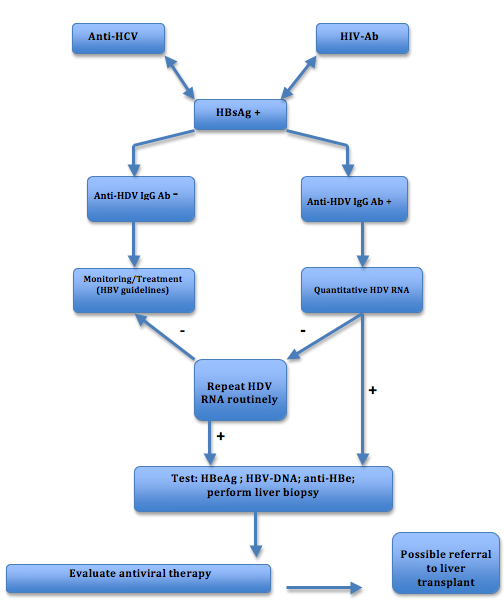Hepatitis D laboratory findings
|
Hepatitis D |
|
Diagnosis |
|
Treatment |
|
Hepatitis D laboratory findings On the Web |
|
American Roentgen Ray Society Images of Hepatitis D laboratory findings |
|
Risk calculators and risk factors for Hepatitis D laboratory findings |
Editor-In-Chief: C. Michael Gibson, M.S., M.D. [1]; Associate Editor(s)-in-Chief: Jolanta Marszalek, M.D. [2] João André Alves Silva, M.D. [3]
Overview
Laboratory Findings
Hepatitis D should be considered in any individual who is HBsAg positive or has evidence of recent HBV infection.
The table below describes the significance of diagnostic markers in HDV infection. [1]
| Diagnostic Markers | Significance |
|---|---|
| Anti-HDV IgG antibody |
|
| Anti-HDV IgM antibody |
|
| HDV RNA |
Qualitative
Quantitative
|
| HBsAg |
Qualitative
Quantitative
|
| HBeAg |
|
| HBV DNA |
Quantitative
|
| ALT |
|

References
- ↑ Hughes SA, Wedemeyer H, Harrison PM (2011). "Hepatitis delta virus". Lancet. 378 (9785): 73–85. doi:10.1016/S0140-6736(10)61931-9. PMID 21511329.
- ↑ Heidrich B, Manns MP, Wedemeyer H (2013). "Treatment options for hepatitis delta virus infection". Curr Infect Dis Rep. 15 (1): 31–8. doi:10.1007/s11908-012-0307-z. PMID 23242761.